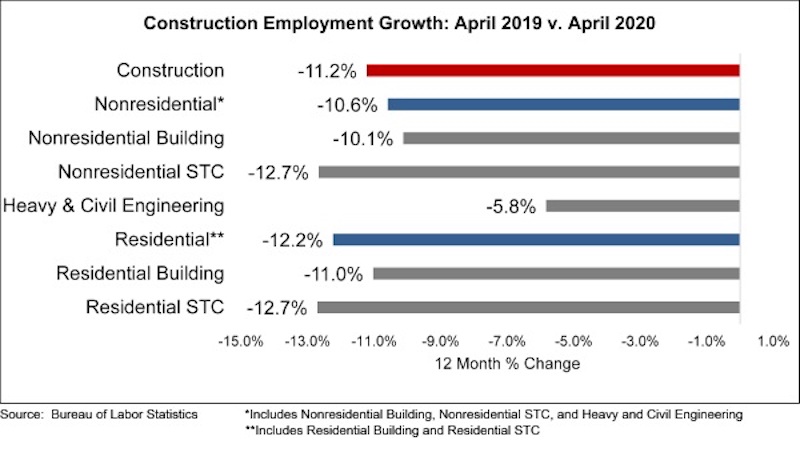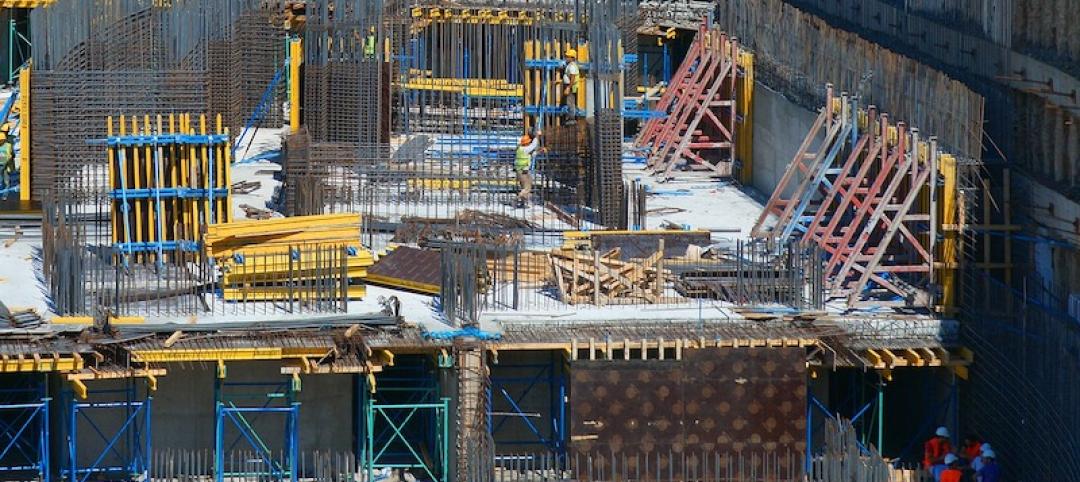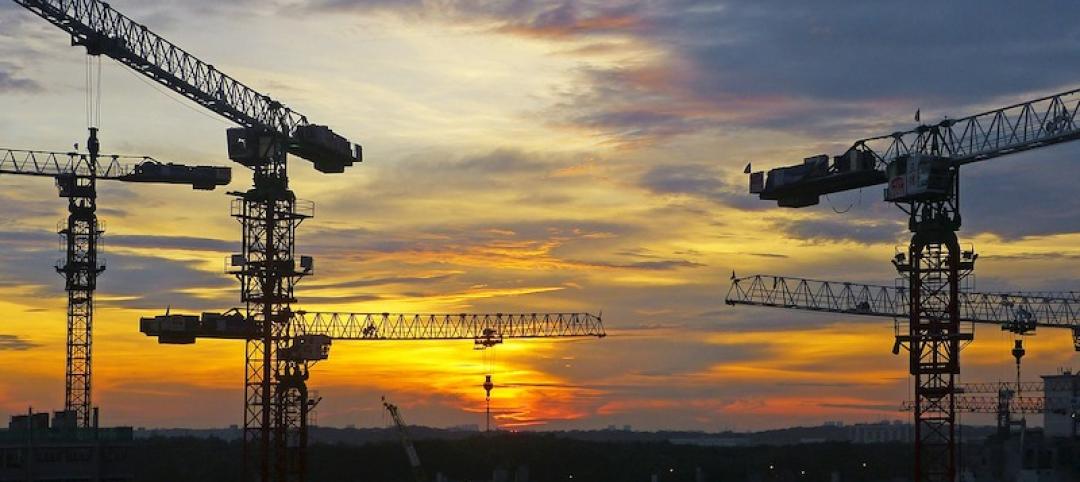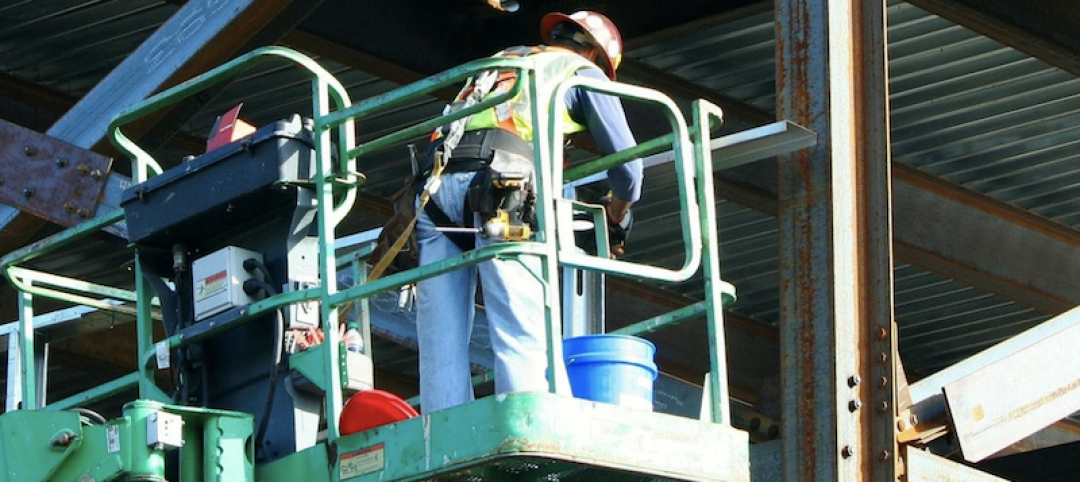The construction industry lost 975,000 jobs on net in April, according to an Associated Builders and Contractors analysis of data released today by the U.S. Bureau of Labor Statistics. This was the largest recorded decrease in construction jobs since the government began tracking employment in 1939, despite construction remaining an essential industry in much of the nation through April.
Nonresidential construction employment lost 560,500 jobs on net in April. There were job losses in all three nonresidential segments, with the largest decline registered among nonresidential specialty trade contractors, which lost 393,100 jobs. Nonresidential building lost 88,500 jobs, while heavy and civil engineering lost 78,900 jobs.
The construction unemployment rate was 16.6% in April, up 11.9 percentage points from the same time last year. Unemployment across all industries rose from 4.4% in March to 14.7% last month. This was the highest rate since the BLS started tracking unemployment in 1948. Because of technical reasons related to the BLS survey and a classification error in several responses, the unemployment rate is probably closer to 20%.
“The hope had been that construction activity would hold up well given the industry’s classification as an essential industry in much of the nation and the presence of substantial backlog coming into the crisis, which stood at 8.2 months in February, according to ABC’s Construction Backlog Indicator,” said ABC Chief Economist Anirban Basu. “But alas, in large measure, those hopes were not realized. The level of construction industry job loss in April easily surpassed that of the worst month sustained during the Great Recession, when 155,000 jobs were lost in March 2009. Between April 2006 and January 2011, construction industry employment declined by 2.3 million. The construction industry lost nearly a million jobs last month alone.
“Based on a combination of business confidence indicators, initial unemployment claims and other emerging data, May will represent another month of crushing construction employment loss,” said Basu. “Project postponements and cancellations are now commonplace, with construction backlog failing to be the protective shield that it normally is during the early stages of economywide recession.”


Related Stories
Market Data | Jun 16, 2021
Construction input prices rise 4.6% in May; softwood lumber prices up 154% from a year ago
Construction input prices are 24.3% higher than a year ago, while nonresidential construction input prices increased 23.9% over that span.
Market Data | Jun 16, 2021
Producer prices for construction materials and services jump 24% over 12 months
The 24.3% increase in prices for materials used in construction from May 2020 to last month was nearly twice as great as in any previous year
Market Data | Jun 15, 2021
ABC’s Construction Backlog inches higher in May
Materials and labor shortages suppress contractor confidence.
Market Data | Jun 11, 2021
The countries with the most green buildings
As the country that set up the LEED initiative, the US is a natural leader in constructing green buildings.
Market Data | Jun 7, 2021
Construction employment slips by 20,000 in May
Seasonally adjusted construction employment in May totaled 7,423,000.
Market Data | Jun 2, 2021
Construction employment in April lags pre-covid February 2020 level in 107 metro areas
Houston-The Woodlands-Sugar Land and Odessa, Texas have worst 14-month construction job losses.
Market Data | Jun 1, 2021
Nonresidential construction spending decreases 0.5% in April
Spending was down on a monthly basis in nine of 16 nonresidential subcategories.
Market Data | Jun 1, 2021
Nonresidential construction outlays drop in April to two-year low
Public and private work declines amid supply-chain woes, soaring costs.
Market Data | May 24, 2021
Construction employment in April remains below pre-pandemic peak in 36 states and D.C.
Texas and Louisiana have worst job losses since February 2020, while Utah and Idaho are the top gainers.
Market Data | May 19, 2021
Design activity strongly increases
Demand signals construction is recovering.

















